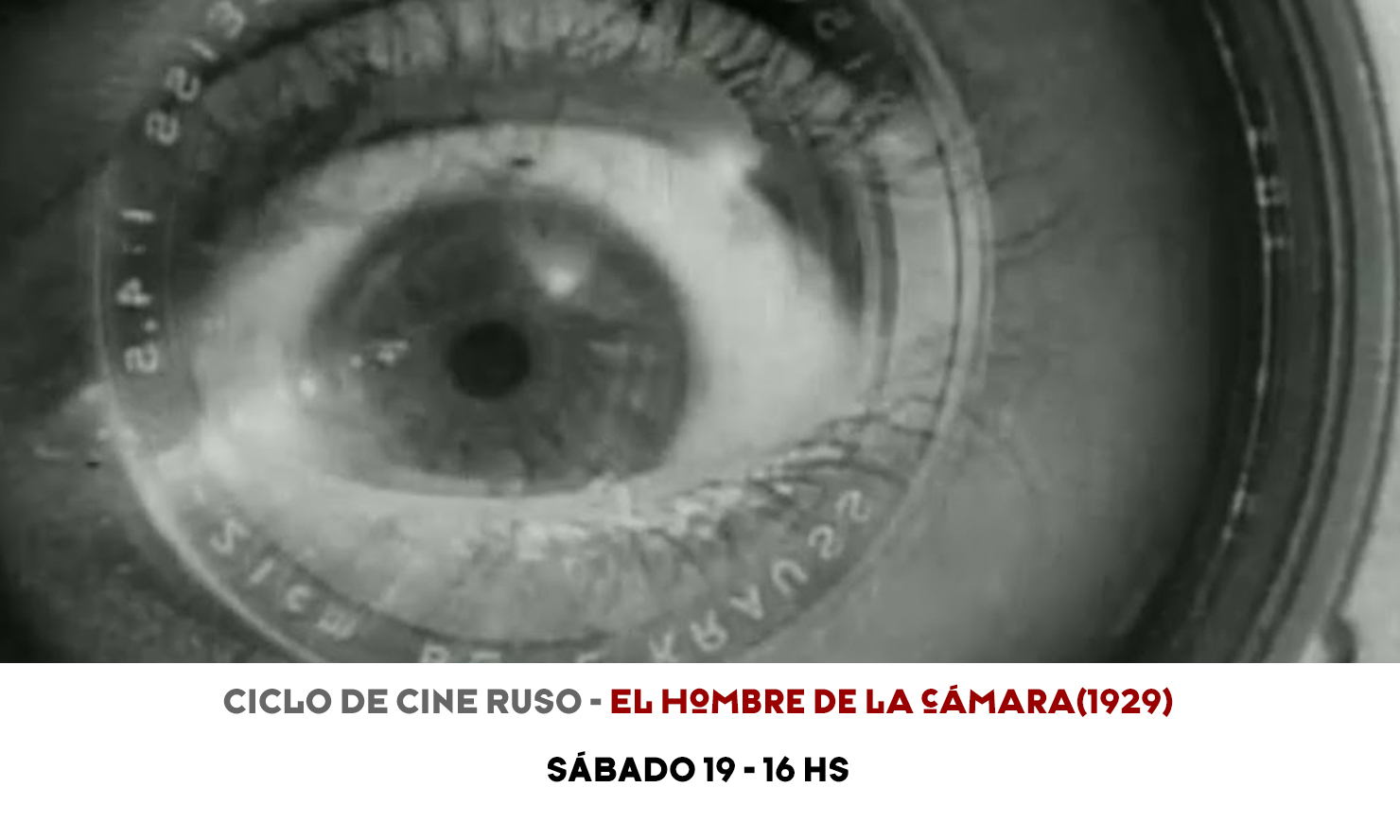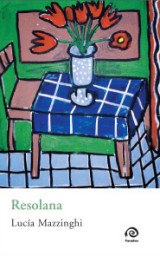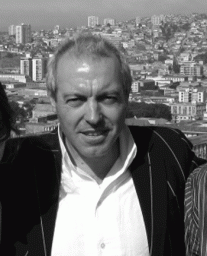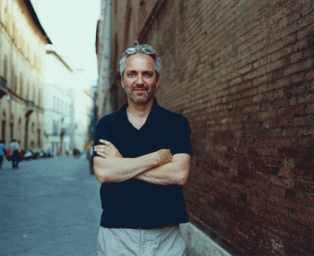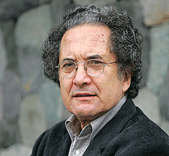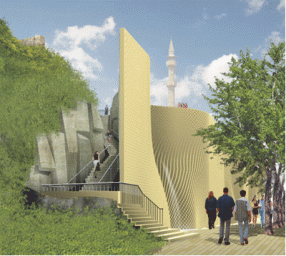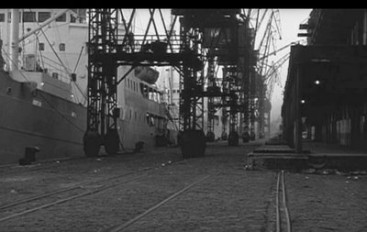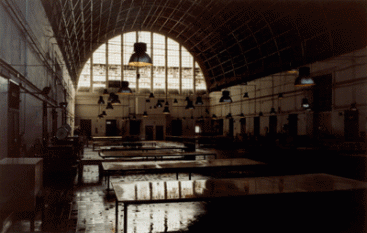The series of talks “Discussions and Dialogues” invites several specialists to reflect upon the city and how it is viewed by the arts, focusing in the city of Buenos Aires.
On each of the three sessions, Fundación Proa will present the thought and work of artists, filmmakers, and creators whose production entails a reflection on contemporary urban life.
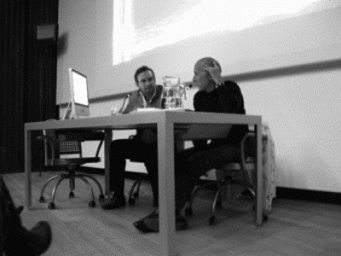
Saturday 8, 5:30 pm
Intersections: city, art, film, literature.
Adrián Gorelik, David Oubiña, and Graciela Speranza
Saturday 15, 5:30 pm
Cinema and the city
Rafael Filippelli, David Oubiña, Guillermo Saavedra, and Eduardo Stupía.
Sunday 16, 5:30 pm
Literature and the city
Ricardo Piglia in conversation with Graciela Speranza
-
Intersections: city, art, film, literature.
Adrián Gorelik, David Oubiña, and Graciela Speranza
“Intersections” sets out a dialogue in which the crossings between city, art, film, and literature will be examined.
If modern art is made in the city, how does the urban matter to art? The city can stimulate art, it can be the surface of its intervention, and a cultural riddle to be solved as well as an urban issue that finds in art a way to think around it different from what can be done in architecture and urban planning.
It is unquestionable that in the last decades all of those possibilities were activated in artistic and cultural millieus. How are those practices modified by the transformations experimented by the city?
Cinema and the city
Rafael Filippelli, David Oubiña, Guillermo Saavedra, and Eduardo Stupía.
Ever since its inception, cinema has been linked to the city. Art of the industrial era, privileged modern discourse, the cinematographer has evolved through the century together with the transformations occurred in our conception of the urban. The interdisciplinary discussion will try to unravel the conceptual implications of that relationship: in what ways has cinema represented the city and how have the forms of the city contributed to shape the language of cinema.
-
Literature and the city
Ricardo Piglia in conversation with Graciela Speranza.
From his readings of twentieth century literature and cinema all the way to his own narrative, the city has been a source of critical reflection and a trigger for the fiction in the work of Ricardo Piglia. On the occasion of the exhibition Urban Spaces: Andreas Gursky, Candida Höfer, Axel Hütte, Thomas Ruff, and Thomas Struth Ricardo Piglia will talk with Graciela Speranza about the urban imaginary in art and literature, and about the cities that create or anticipate their own fictions.
-
Rafael Filippelli
Was born in Buenos Aires on the 24th of November 1938. He is a filmmaker and scriptwriter. He has worked in several films of Leopoldo Torre Nilsson and has also worked in advertising. His first short film, Porque hoy es sábado, from 1961, and his short feature film Opinaron (1970) were his first films before his exile in Mexico in 1976 and in Los Angeles in 1982.
Back in Argentina, he staged The Brig by Kenneth Brown and did El fin del viaje for TV based on the story by Ricardo Piglia. The plot of the film was developed by Antonio Dal Malsetto who collaborated in the writing of the script with the directors. Nevertheless, a few years later Dal Masetto used the same story line to write a novel with the same name as the movie. His first feature film was Hay unos tipos abajo, which he co-directed with Emilio Alfaro in 1985. His works include: El ausente(1987), Imágenes más sonidos (1990), Buenos Aires I (1991), Buenos Aires II (1992), José Aricó (1992), Buenos Aires III (1993), El río (1993), Retrato de Juan José Saer (1996), Lavelli (1996), Una actriz (1997), Notas de tango (2000), Una noche (2002), y Esas cuatro notas (2004). He is considered one of the most important intellectuals of Argentinean cinema.
Adrián Gorelik
Was born in Mercedes, Buenos Aires, in 1957. He is an architect and has a PhD in History, both from Universidad de Buenos Aires. He is a researcher at Conicet and Professor at Universidad Nacional de Quilmes. He is an Editorial Board member of Prismas. Revista de Historia Intelectual and has been a deputy director at Punto de Vista. In 2003 he was awarded a Guggenheim Fellowship and has been a Visiting Professor at CLAS, Cambridge University in 2002 and at GSD, Harvard University in 2005. His main Works are: La grilla y el parque. Espacio público y cultura urbana en Buenos Aires, 1887-1936 (Editorial de la UNQ, 1998) y Miradas sobre Buenos Aires. Historia cultural y crítica urbana (Siglo XXI, 2004).
David Oubiña
Was born in Buenos Aires in 1964. He holds a PhD in Literature from Universidad de Buenos Aires. He is a researcher at CONICET and teaches at the Universidad de Buenos Aires, at Universidad del Cine, and at New York University. He was visiting scholar at the University of London and at the University of Bergen. He is member of the Editorial Board of the journal Las ranas (artes, ensayo y traducción) and of Cahiers du cinéma, Spain. He was awarded scholarships from the Guggenheim Foundation, the Fulbright Commission, the British Council, the Fundación Antorchas, and from Fondo Nacional de las Artes. He has worked as a script consultant for different films and as an assessor of cinematographic projects for Fundación Antorchas and Fundación TyPA. He has written together with Rafael Filipelli Música nocturna, Asesinato y muerte, and Notas de tango, amongst other films. His last books are Filmología. Ensayos con el cine (Manantial, 2000, Fondo Nacional de las Artes: First Prize for Best Essay Book); El cine de Hugo Santiago (Festival de cine de Buenos Aires, 2002), Jean-Luc Godard: el pensamiento del cine (Paidós, 2003); Estudio crítico sobre La ciénaga, de Lucrecia Martel (Pic Nic, 2007), Una juguetería filosófica. Cine, cronofotografía y arte digital (2009), and El silencio y sus bordes. Discursos extremos en la literatura y el cine argentinos (forthcoming).
Ricardo Piglia
Was born in Adrogué, Buenos Aires, in 1941. Writer, essayist, and screenwriter he has taught at Universidad de Buenos Aires and at University of Davis, California. He is currently Professor at Princeton University at the Walter S. Carpenter Department. He has published three novels: Artificial Respiration, The Absent City, and Money to Burn; three books of stories: The Invasion, Assumed Name, and Perpetual Prison, all of them translated to several languages and acclaimed internationally. His books on Criticism and essays Criticism and Fiction, Brief Forms, and The Last Reader can be read as first steps towards a future autobiography.
Guillermo Saavedra
He was born in Buenos Aires on October 7th 1960. He is a poet, cultural critic, and editor of vast trajectory. He was editor of the cultural supplements of La Razón, Clarín, and La Nación newspapers. He worked also as a correspondent for El País of Montevideo, and was one of the directors of Babel magazine and director of the magazine of Teatro Colón. He created and hosted the radio show El Banquete. He was editor of Grupo Aguilar, Taurus, Alfaguara, and of the publishing houses Tusquets, Manantial, and Losada. He has written the poetry books: Caracol (1989);Alrededor de una jaula (1995), El velador (1998), and La voz inútil (2003); the book of interviews with Argentinean narrators La curiosidad impertinente (1993); and of two children books as well as several anthologies. His poems were published in numerous Argentinean and foreign anthologies and were translated to English, German, Italian, Portuguese. He received a scholarship from The Guggenheim Foundation to start a book on poetry. Currently, he is the Publishing Director at the Complejo Teatral de Buenos Aires and at the cultural magazine Las ranas.
Graciela Speranza
Is a critic, scripwriter, and narrator. She holds a PhD in Literature from Universidad de Buenos Aires where she teaches Argentinean Literature. She has published the books Primera persona. Conversaciones con quince narradores argentinos, Guillermo Kuitca. Obras 1982-1998, Manuel Puig. Después del fin de la literatura, Fuera de campo. Literatura y arte argentinos después de Duchamp and a novel, Oficios ingleses, among others. She collaborated in Crisis, Babel, Página 12, and Clarín, and currently she is joint director og the magazine of arts and literature Otra parte. Between 2005 and 2007 directed the Encuentros Internacionales de Pensamiento Urbano.
Eduardo Stupía
Was born in Buenos Aires in 1951 and studied at the National School of Fine Arts Manuel Belgrano. He teaches visual arts since 1986, and has been a jury in municipal and national awards. He exhibits his work individually and collectively since 1973, and participates frequently of group exhibitions, awards, and in national and international art spaces. In Argentina, his work is part of the Museo Nacional de Bellas Artes, Museo de Arte Moderno, Museo Sívori de Artes Plásticas, Museo de Arte Latinoamericano de Buenos Aires (MALBA) collections, among others. Internationally, his work was part of the exhibition New Perspectives in Latin American Art, 1930-2006: Selections From a Decade of Acquisitions at MOMA (New York). Amongst the many awards he has received, we can find the Great Honor Awards from two of the most important Art Institutions in Argentina: Salón Nacional and El Premio Municipal, he has been recognized twice as one of the Hundred Most Important Figures of Argentinean Visual Arts of the Decade.
